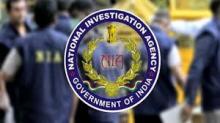-

Pakistan has struggled to cope with the spread of polio, a debilitating viral disease. Human infections are frequently reported despite government and international agencies’ efforts to eliminate the disease.[1] According to a World Health Organization (WHO) estimate, at least 72 polio cases were recorded in Pakistan in 2013, compared to 58 cases in 2012.[2] In 2014, the number of infected children had already reached 115 through August.[3] The most affected provinces of Pakistan are Punjab, Sindh, and Khyber-Pakhtunkhwa (KP).
-

One video with Hindi, Tamil and Urdu subtitles, posted on jihadi forums and YouTube, features a Canadian jihadi identified as Abu Muslim, who is shown firing a rocket-propelled grenade and participating in combat before he is killed. The video shows the Canadian asking other Muslims to join the jihad.
The video titled 'Al-Ghuraba-The Chosen Few of Different Lands' reveals the account of Abu Muslim, a jihadi from Canada. The video is subtitled in Tamil (right, from top to bottom), Urdu and Hindi languages.
-

Read about Pakistan's Frankenstein’s monster, Mast Gul
"Legendary Kashmiri Militant Mast Gul Reemerges after Long Hibernation" , Militant Leadership Monitor [June 2014 Volume V, Issue 6] [Animesh Roul]
-

Film shows two worlds of Indian women
Documentary recently released follows beauty pageant hopefuls and Hindu right-wing training camp for girls.
Alys Francis: Al Jazeera 19 Jun 2014
Excerpts: Hindutva ideology
-

Transnational Islamist terrorist groups have recently made sporadic attempts to lure India’s Muslim population towards global jihad, frequently urging them to fight the democratically elected secular government. India-specific incitements have issued from al-Qaeda chief Ayman al Zawahiri and al-Qaeda ideologue Maulana Asim Umar through audio-visual messages that directly target Indian Muslims.
-

'The Modi-led BJP govt is on global terror radar'
May 28, 2014 12:24 IST
Inviting Pakistan Prime Minister Nawaz Sharif to India to be a part of his swearing-in ceremony was a masterstroke on Prime Minister Narendra Modi’s part. But will it solve the problem of cross-border terror?
-

"Indian Investigations Reveal Funding System for Promoting Jihad in Kashmir" , Terrorism Monitor (Jamestown Foundation) Volume: 12 Issue: 7, April 4, 2014.
-

The fake currency trade has been haunting Indian security establishments as well as economic intelligence agencies for quite a long time. Most recently, in February 2014, the finance minister of India informed the Upper House of Parliament (Rajya Sabha) that counterfeit Indian currency notes worth INR 107.33 crores (approximately US $ 17 million) have been seized between January 2010 and June 2013. If the intelligence agencies are to be believed, the FICNs are printed in Pakistan and brought to India through couriers via Bangkok, Kathmandu and Dhaka airports.
-

Al-Qaeda Leader al-Zawahiri Urges Jihad Against the “Anti-Islamic” Government of Bangladesh
Widespread violence, marked by protest rallies, hartals (general shutdowns), group clashes and bombings have led to massive confrontations between secular and Islamist forces in Bangladesh over the last year. Now, al-Qaeda leader Dr. Ayman al-Zawahiri has issued a call for jihad in Bangladesh, the fourth largest Muslim nation in the world.
-

Deba R Mohanty (Vice President, SSPC) has published a policy paper titled "Assertive but Flexible: India‘s Approach to Non-Proliferation and Export Control Regimes" (NFG Policy Paper Series, No. 02, December 2013), NFG Research Group, Asian Perceptions of the EU“, Freie Universität Berlin.
Policy Paper 2: Assertive but Flexible: India's Approach to Non-Proliferation and Export Controls
Paxton ported to drupal by DropThemes.in